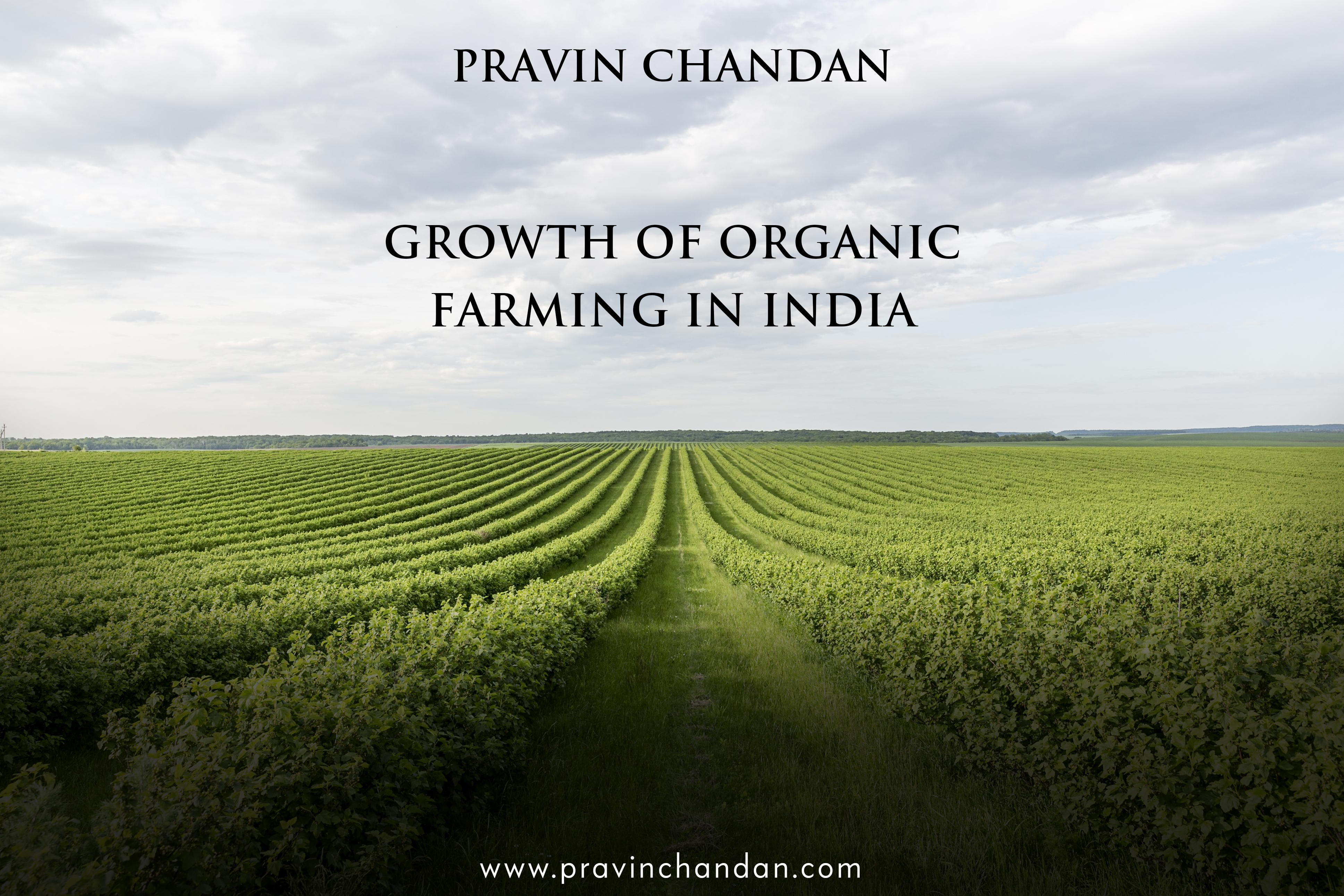
As on 31st March 2021 total area under organic certification process (registered under National Programme for Organic Production) is 4339184.93 ha (2020-21). This includes 2657889.33 ha cultivable area and another 1681295.61 ha for wild harvest collection.
Among all the States, Madhya Pradesh has the largest area under organic certification followed by Rajasthan, Maharashtra, Gujarat, Karnataka, Odisha, Sikkim and Uttar Pradesh. In 2016, Sikkim achieved a remarkable distinction of converting its entire cultivable land (more than 75, 000 ha) under organic certification.
In the financial year of 2020, over two percent of India’s net area was under organic farming, a major increase from last year. Overall, the area under organic farming has increased continuously, signifying more demand for organic food across the country.
Growth trajectory
Since 1985, the total area of farmland under organic production has increased steadily over the last three decades, states Organic farming in India: a vision towards a healthy nation, a research paper by Suryatapa Das, Annalakshmi Chatterjee and Tapan Kumar Pal. Not many know that by 2017, there was a total of 69.8 million hectares of organically managed land recorded globally which represents a 20% growth or 11.7 million hectares of land in comparison to the year 2016. This is the largest growth ever recorded in organic farming. In 2017, it was also reported that day to day the number of organic products increases considerably all over the world. Now, Asia contributes to the largest percentage (40%) of organic production in the world and India contributes to be largest number of organic producer (835 000)
Government sops
The major states involved in organic agriculture in India are Gujarat, Kerala, Karnataka, Uttarakhand, Sikkim, Rajasthan, Maharashtra, Tamil Nadu, Madhya Pradesh, and Himachal Pradesh. The Indian government has, over the years, launched and implemented a number of programs and schemes for boosting organic farming in the country. A few notable ones include The Paramparagat Krishi Vikas Yojana, Organic Value Chain Development in North Eastern Region Scheme, Rashtriya Krishi Vikas Yojana, The mission for Integrated Development of Horticulture (a. National Horticulture Mission, b. Horticulture Mission for North East and Himalayan states, c. National Bamboo Mission, d. National Horticulture Board, e. Coconut Development Board, d. Central Institute for Horticulture, Nagaland), among several others.
The research paper also highlights that India ranked eighth with respect to the land of organic agriculture and 88th in the ratio of organic crops to agricultural land as per Agricultural and Processed Food Products Export Development Authority and a report by the Research Institute of Organic Agriculture.
What it entails
Organic farming can be categorised into two: pure organic farming where no unnatural chemical used and all fertilisers and pesticides are obtained from natural sources; integrated organic farming that comprises integrated nutrients management and integrated pest management.
Benefits of organic farming
If you have been curious as to why we are seeing a sudden spurt in start-ups and farmers specialising in all things organic, it is because the method of farming has a range of benefits. Here are a few:
Better tasting, nutritious produce
It has been proven that fruits and vegetables that are raised using organic methods have a much better taste than other mechanically farmed ones. This is because they are given a much longer time to develop and are free of artificial chemicals.
Lesser pesticide and chemical residue in soil
Organic farming minimises and significantly does away with the use of widely-used pesticides and chemicals. This goes on to reduce major environmental issues such as pollution and ensures the health of soil, water, air and flora and fauna.
A natural environment
Organic farming usually goes down in a natural environment, states a report in akmindia.in. Unnecessary enclosures are not used for the crops or plants and by doing so, productivity is increased and is way better compared to closed spaces. An open and natural area for growing the crops would give them wild and instinctive growing nature. This is ideal for the crops and is one of the factors that leads to the plants being organic.
Promotion of biodiversity
Crop rotation to build soil fertility and raising animals naturally helps promote biodiversity, which promotes greater health across all living species. As organic farms provide safe havens to wildlife, local ecosystems also improve. (precisionagricultu.re)
Less energy consumed
As we now know, organic farming does not rely on the use of synthetic fertilisers and avoiding them leads to energy conservation. It is because the manufacturing process of these artificial chemicals consumes a significant amount of energy. On an average, it is safe to say that the energy usage is lower by at least 30-50% in the organic farming systems, states the European Journal of Molecular & Clinical Medicine.